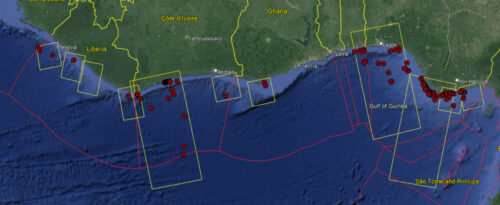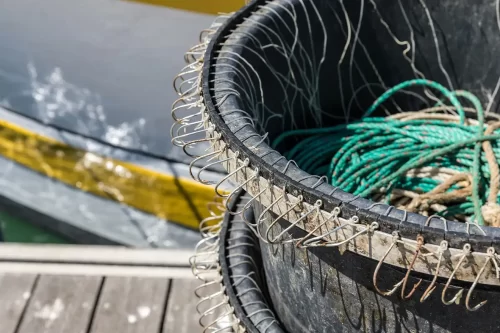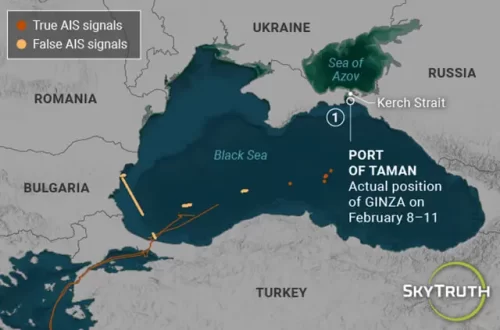By April 2020, some 750 artisanal fishing vessels targeting jumbo flying squid and mahi-mahi are expected to join the Peruvian Vessel Monitoring System (VMS).
As these vessels – 365 so far – are newly incorporated into Peru’s VMS, they will also appear for the first time on the public Global Fishing Watch (GFW) map. The new transparency of these two large artisanal fleets demonstrates the progress the Peruvian government is working with artisanal fishermen on towards traceability and sound management of these important fishing resources. En español
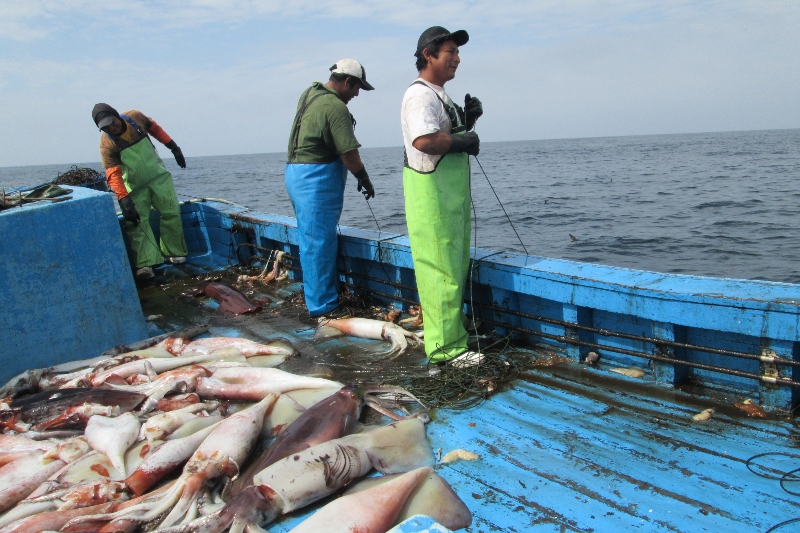
The expansion of the VMS tracking program is the culmination of new policies introduced over the past few years to strengthen work with the small-scale fisheries sector. According to Jorge Castillo Figueroa, former official of the Peruvian Ministry of Production (PRODUCE) and current advisor to the fishing cooperatives of La Islilla and La Tortuga on the north coast of Peru, through Supreme Decree No. 006-2016-PRODUCE, general provisions were established to strengthen management and control of artisanal fishing by forming fishing cooperatives. In this context, two pilot programs were implemented in the communities of La Islilla and La Tortuga in Peru’s Paita province for jumbo flying squid (Dosidicus gigas) and mahi-mahi (Coryphaena hippurus). A second decree, No. 003-2018-PRODUCE, published on May 15, 2018, established that, as a general condition for maintaining fishing permits, vessels must use VMS. Following this decree, a third pilot program was implemented for artisanal fishermen in the district of San José.
These three fishing cooperatives of Islilla, La Tortuga and San José, representing the owners of approximately 750 vessels, mainly fishing jumbo flying squid and mahi-mahi and traveling up to 600 miles from shore, installed satellite monitoring systems to meet the new requirements, and their fishing activity is now visible to the public for the first time on the GFW map.
A new decree, published on October 17, 2019, now sets March 2020 as the deadline for all vessels in the pilot programs to acquire satellite monitoring equipment.
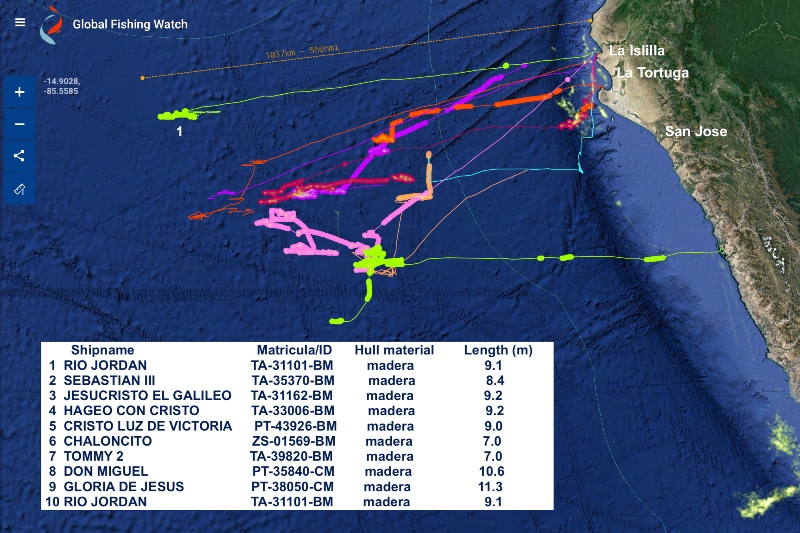
It is in this context that GFW joins the effort by enabling the public to see, for the first time, who is fishing these resources, what types of vessels are used, and where fishing activity takes place. For the fishermen, public tracking of their fishing activity will mean clearly registering their fleet’s area of operation to regulators and other fishing sectors in Peru and in the region. The image below shows various artisanal fishing vessels, made out of wood, belonging to the fishing cooperatives of La Islilla and La Tortuga, which regularly go out beyond 500 nautical miles from the coast in search of mahi-mahi. Thanks to the effort and commitment of vessel owners within the pilot programs, regulated by Supreme Decree No. 006-2016-PRODUCE, 365 of these fishing vessels already appear in the GFW map, in line with 2018 the VMS sharing agreement signed between PRODUCE and GFW.

GFW is pleased to see the success of this new Peruvian government initiative, which we believe will bring substantial benefits for artisanal fishermen. Firstly, the world will know that there is a Peruvian artisanal fleet fishing for jumbo flying squid and mahi-mahi in the Pacific Ocean. Secondly, the records of their trips in international waters will allow Peru to strengthen its position within international fisheries management organizations such as the South Pacific Regional Fisheries Management Organization (SPRFMO). Thirdly, these records will facilitate the traceability of fishing resources and improve their value in national and international markets.
Our congratulations to the Jehová Rey de Reyes Fishing Cooperative – La Islilla and the Jehová es mi Pastor; Nada me faltará Fishing Cooperative – La Tortuga, its leaders and partners for this effort that will undoubtedly bring greater well-being to fishermen, their families and their communities. Also, our recognition to the Peruvian government for promoting artisanal fishing tracking through the implementation of satellite monitoring systems. At GFW, we recognize the great importance of making small-scale fishing fleets trackable. In the future, we look forward to collaborating in the development of further technologies and analysis to support this effort in Peru and globally.
